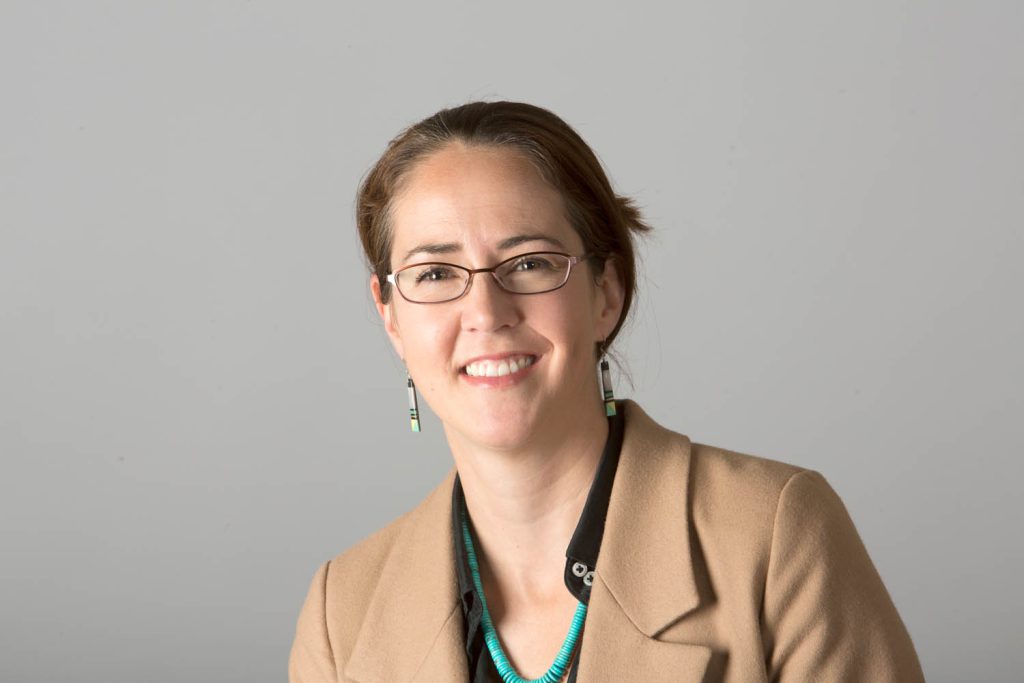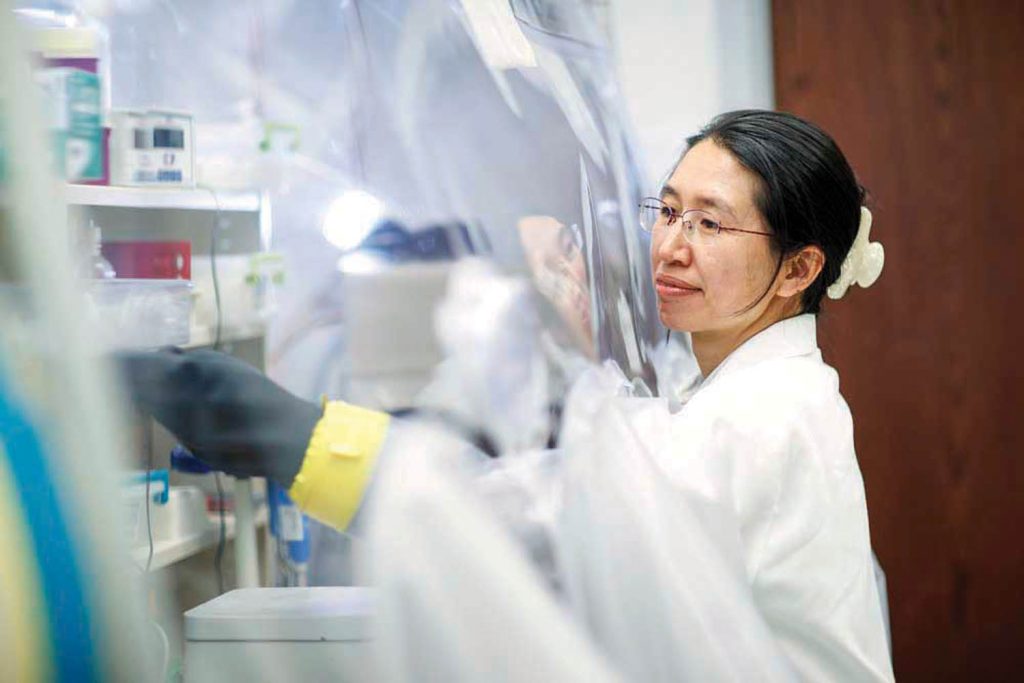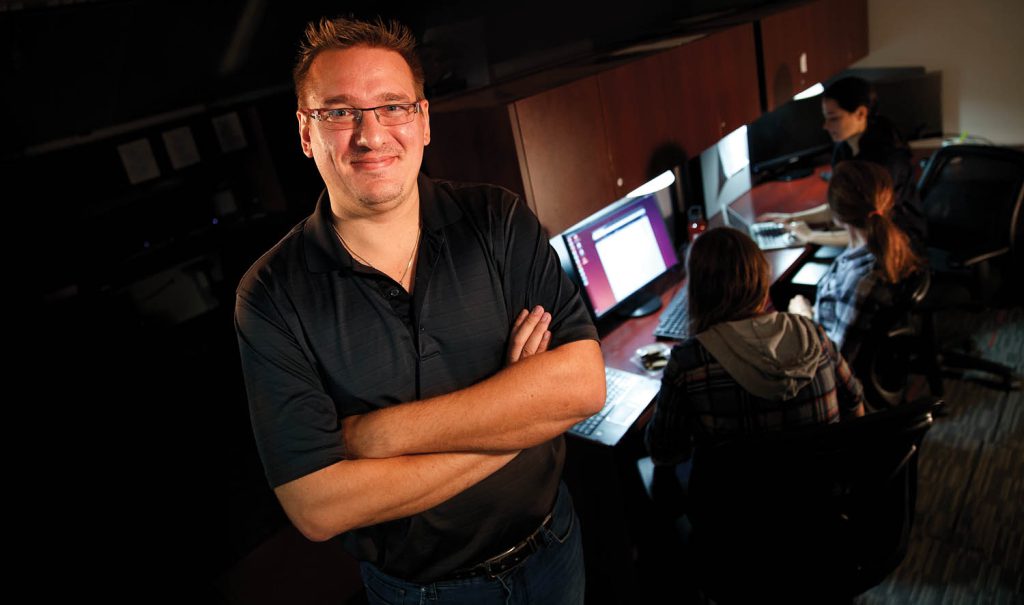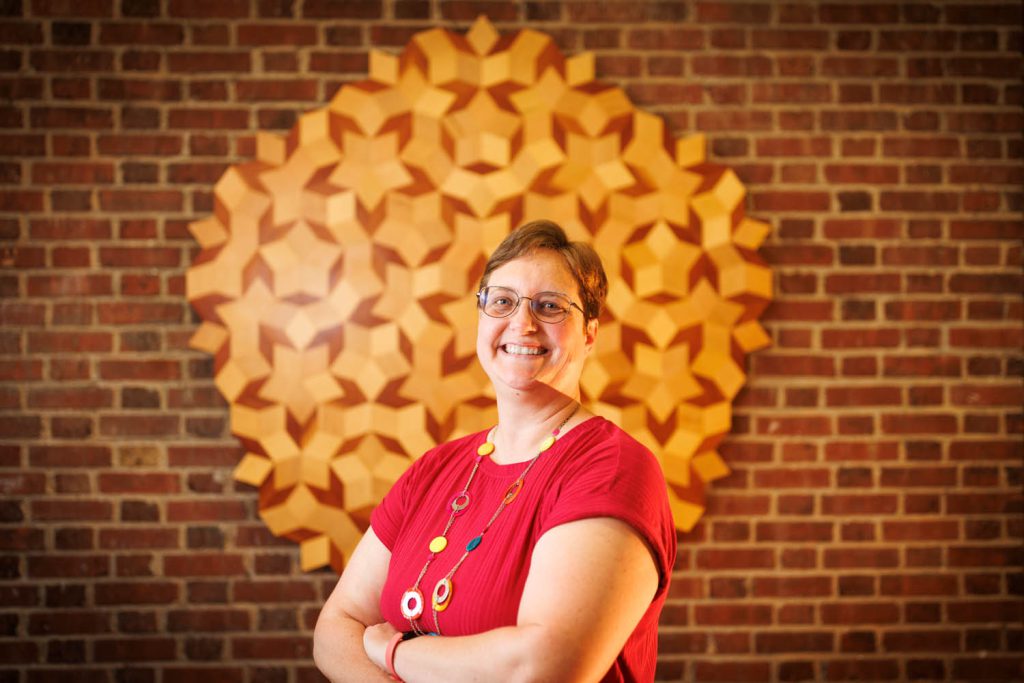
Preparing the Next Generation of Research Leaders
To successfully lead research programs and interdisciplinary projects, faculty need to develop skills beyond their discipline, including business acumen, management and leadership. The Office of Research and Economic Development supports faculty through innovative programs designed to prepare the next generation of research leaders.
“Emphasis on research leadership is one of the cornerstones of our work,” said Bob Wilhelm, vice chancellor for research and economic development. “It’s not enough to be at the top of your game just in pure research or creative activity. We have intentionally made research leadership a focus, and we’re excited to see it paying dividends for our faculty and the university.”
Two programs – the Research Development Fellows Program and the Research Leaders Program – give faculty tools to further develop their strengths, build relationships across disciplines and recognize opportunities for collaboration.
Nebraska aims to reach faculty at each career stage, Wilhelm said. The Fellows program helps faculty jump-start their research programs. The Leaders program prepares mid-career and experienced researchers to develop and lead multidisciplinary teams in the pursuit of major external funding. Together, Wilhelm said, the programs underscore the fact that the world’s most challenging problems – including the issues addressed in the university’s seven Grand Challenges – require the best talent that can be assembled, talent that spans many disciplines.
The Leaders program, now in its third year, is believed to be the first leadership development program in the Big Ten, and among the first nationally, to focus on research, said Nathan Meier, assistant vice chancellor for research.
The goal, Wilhelm said, is to create a campus culture that is committed to increasing the impact of research and creative activity, a key aim of the university’s N2025 strategic plan.
Rising Research Leaders

Carrie Heitman
Anthropologist Carrie Heitman was selected for the Fellows program after joining Nebraska in 2013 and was part of the Research Leaders inaugural class in 2020.
Early in her career, Heitman was seeking guidance in visualizing what an R1, or top tier, research program could look like and how she could build the impact and scope of her work. Through the Fellows program, she learned about the research support available at Nebraska and developed a network of trusted peers.
“Being surrounded by so many accomplished people really ups your game. They’re all aiming high,” said Heitman, associate professor in the School of Global Integrative Studies.
It also helped her develop a vision for her research program that extends beyond shorter-term tasks like writing journal articles and applying for grants, she said.
“Having the space to do this kind of visioning – which is not work I would have known how to structure or how to prompt myself to do – was really helpful,” Heitman said.

Limei Zhang
For Limei Zhang, the chance to hone her strengths was an unexpected benefit of the Leaders program. Through a partnership with the Center for Executive and Professional Development in the College of Business, faculty in the Leaders program explore the Clifton Strengths Institute’s talent assessment program.
“I thought I knew myself very well. I’m a researcher. I study myself and I study others,” she said. Zhang was able to reflect on how she could harness her personality and tendencies – she identifies as a strong introvert – to build her research program and better communicate its impact.
Zhang also discovered the potential of research collaborations with faculty she otherwise wouldn’t have had opportunities to meet.
“They think differently than I do, and it’s really beneficial to all of us,” said Zhang, associate professor of biochemistry.

Tomas Helikar
Several participants pointed out that successful researchers must develop skills beyond the science they love and have trained for if they are to successfully build a program.
“When we get our Ph.D.s and get our postdocs done, the focus is about the science and doing research,” said Tomas Helikar, Susan J. Rosowski Associate Professor of Biochemistry. “But as soon as we start our first tenure-track position, we apply our scientific skills day to day less and less, and need to use skills related to people management and marketing and sales and so on. We become CEOs of these microinstitutions within the university.”
Hiring, making budgets, planning and other management skills are essential, said Helikar, selected for both the Fellows and Leaders programs.
“It was designed to make you think big in terms of your research program and how to become a leader in that context,” Helikar said.
Helikar’s work is featured on page 16.

Maital Neta
Like many midcareer professionals, Maital Neta was asking herself: “What’s next?”
She had participated in the Fellows program earlier in her career and already had experience leading funded projects, including one through the National Institute of Mental Health and another through the National Science Foundation’s Faculty Early Career Development Program. Neta, the Carl A. Happold Associate Professor of Psychology, hoped to create a broader framework for accomplishing her research goals. The Leaders program helped her do that.
“It was fantastic for that,” she said. “We’re all so busy, and we have so many immediate demands on our time. It’s really hard to create the space to think about those questions and follow through. It forced me to devote the time to that.”
Neta is particularly excited to have learned how to create research teams.
“That is a really important part of what makes someone a leader. Seeing the value of different parts, understanding how to make that ensemble work together, being the glue in a sense,” Neta said.

Wendy Smith
Wendy Smith knows how to set goals and check tasks off an overflowing to-do list. Team building, however, was outside her comfort zone. One aim of the Leaders program is preparing faculty to lead large teams.
“If I hadn’t done that, I don’t know that I would have started reaching out and cold-calling people to see if they wanted to be part of something, or tried to lead a project with 45 other people,” said Smith, research professor of mathematics and director of the Center for Science, Mathematics and Computer Education.
Smith said the program helped her think strategically about how to build teams and foster strong relationships between team members with different backgrounds and expertise.
“These were skills I hadn’t learned before,” Smith said. “When you get a Ph.D., unless you’re doing it in education leadership or business leadership, you don’t necessarily get those kinds of experiences and opportunities.”
Smith now leads a five-year, $3 million NSF-funded project to help STEM students smoothly transition from two-year to four-year institutions. This collaboration involves 22 institutions. Read more about the project on page 12.
+ Additional content for Preparing the Next Generation of Research Leaders
Nebraska news release: Research Leaders Program honors legacy by looking to future
Website: Research Development Fellows Program
Website: Research Leaders Programresear
